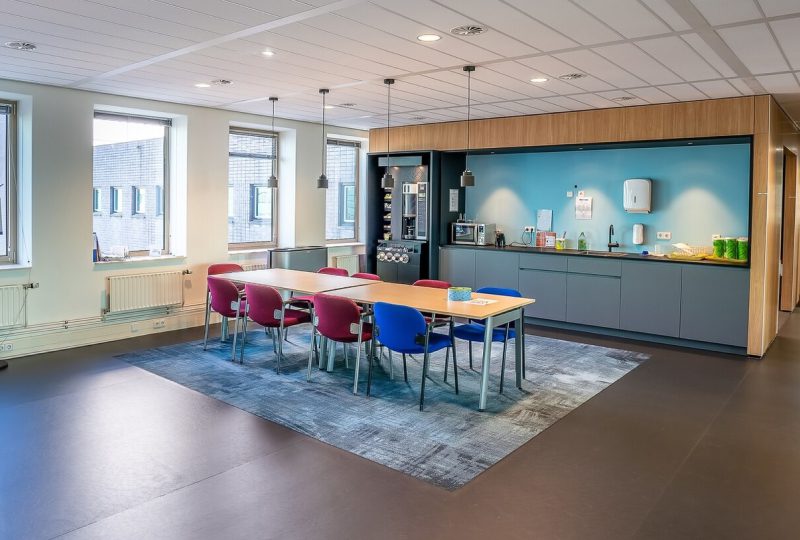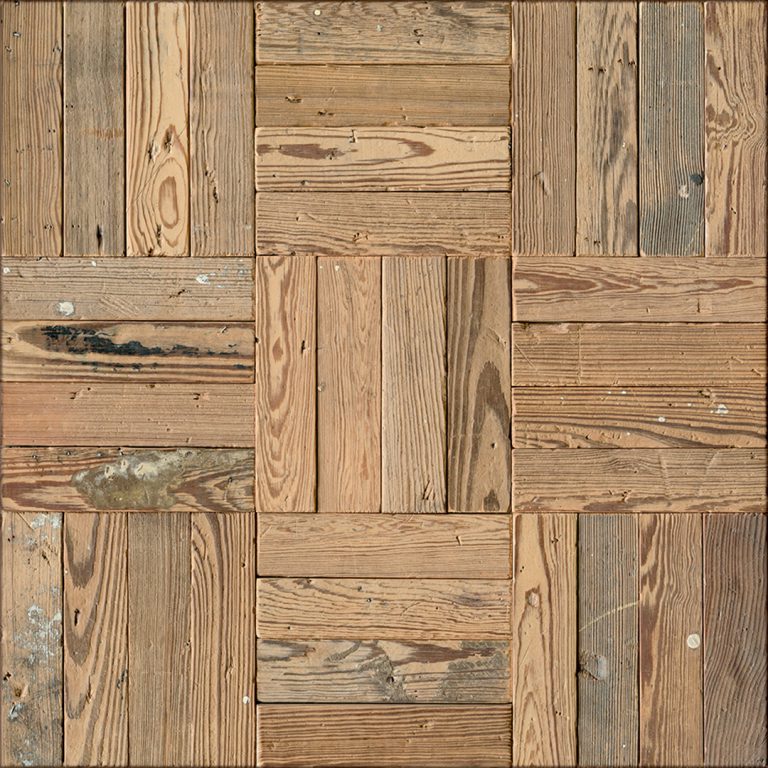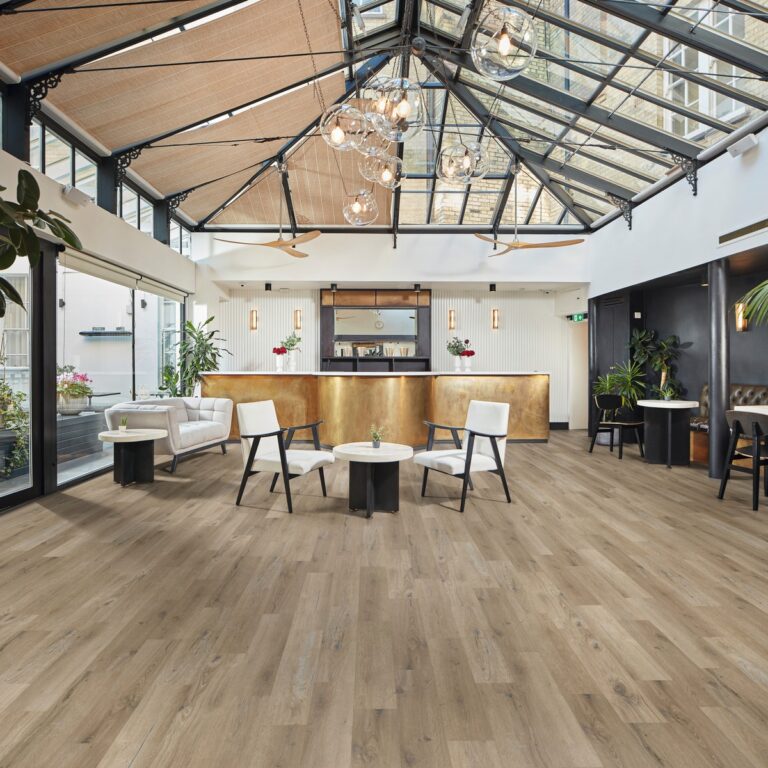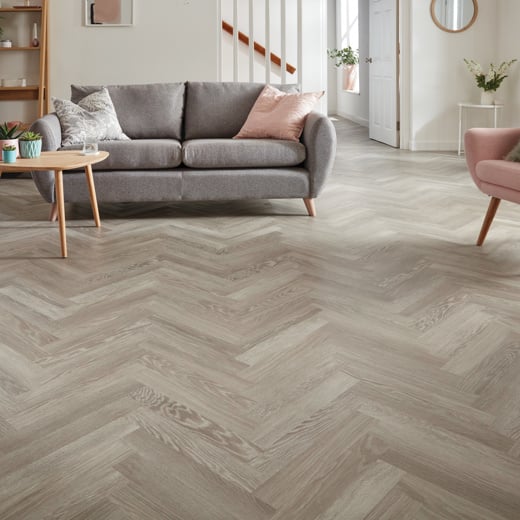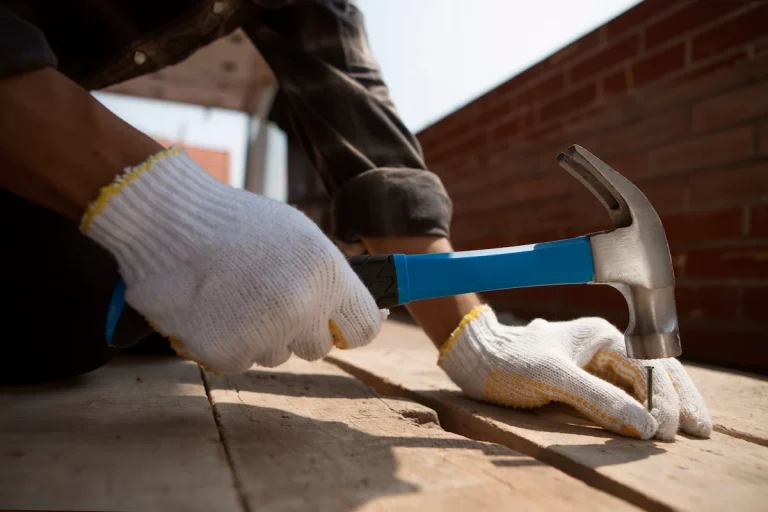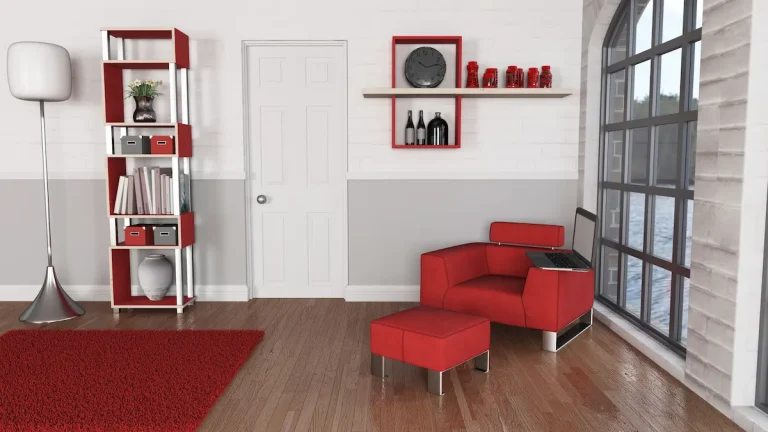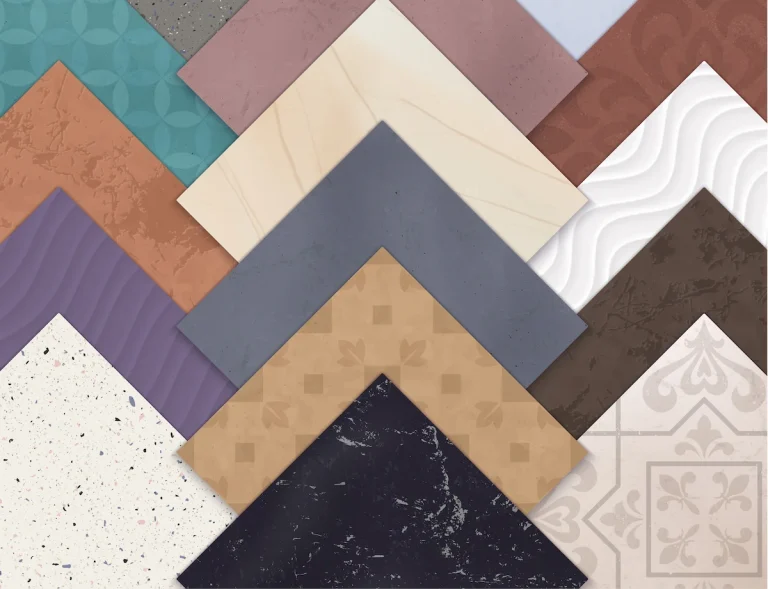Commercial spaces require durable, practical, and aesthetically pleasing flooring options to withstand the heavy foot traffic and diverse activities they host. From offices and retail stores to restaurants, hospitals, and schools, the choice of commercial flooring can significantly impact the functionality and appearance of a space. In this comprehensive guide, we will delve into the world of commercial flooring, exploring the different types of flooring options available, the key factors to consider when choosing commercial flooring, and the best flooring options for various commercial spaces.
We will provide insights on how to select the right flooring contractor for commercial spaces. Whether you are a business owner, facility manager, or a contractor, this article aims to equip you with the knowledge needed to make informed decisions when it comes to commercial flooring.
What Is Commercial Flooring?
Commercial flooring refers to the durable and cost-effective flooring solutions designed for high-traffic areas in commercial spaces such as businesses, retail establishments, offices, hospitality venues, restaurants, healthcare facilities, and educational institutions.
It plays a crucial role in maintaining a professional and aesthetically pleasing environment while withstanding heavy foot traffic, potential spills, and daily wear and tear. The essential characteristics of commercial flooring include resilience, easy maintenance, and a long lifespan. Durability is paramount in commercial settings to ensure that the flooring can withstand the demands of daily use while providing a safe and secure surface for employees, customers, and visitors.
The choice of material for commercial flooring is essential, considering factors such as maintenance requirements, cost-effectiveness, and the ability to align with the desired design aesthetic.
Types of commercial flooring
The different types of commercial flooring include:
- vinyl
- laminate
- hardwood
- concrete
- carpet
- tile
- rubber
- linoleum
Each offering a unique combination of sustainability, aesthetics, functionality, and performance to meet diverse commercial requirements.
1. Carpet Flooring
Carpet flooring is a popular choice for commercial spaces due to its durability, resistance to wear and tear, moisture resistance, and the availability of diverse design options, colours, and aesthetics.
It provides a welcoming environment for employees and customers, making it ideal for areas with high foot traffic. The durability of commercial-grade carpets ensures they can withstand heavy use without showing signs of wear. The moisture-resistant properties of these carpets make them suitable for areas prone to spills or accidents, contributing to a safer and cleaner workspace.
The wide array of design options available allows businesses to create a unique and visually appealing interior that aligns with their branding and style.
2. Vinyl Flooring
Vinyl flooring is a great option for commercial environments, as it can handle the heavy foot traffic and frequent use without showing signs of wear and tear. Whether it’s a bustling office space or a busy retail store, vinyl flooring stands up to the challenge, providing a durable and long-lasting solution.
Its low maintenance requirements make it a popular choice for businesses, as it can be easily cleaned and maintained, reducing the time and effort needed for upkeep. Its sustainable characteristics also contribute to a healthier environment, as it is often made with recycled materials and can be recycled at the end of its life cycle, supporting eco-friendly practices.
3. Hardwood Flooring
Hardwood flooring is a timeless option for commercial spaces, prized for its traffic-resistant properties, longevity, aesthetic appeal, and potential for customisation.
It has been a popular choice for centuries due to its ability to withstand heavy foot traffic and maintain its natural beauty. In addition, hardwood floors offer a wide range of customisations, from various wood species to unique finishes, allowing businesses to create a distinctive ambiance.
The durability of hardwood flooring makes it a practical and long-lasting investment, requiring minimal maintenance and adding value to the commercial property. Its versatility in design and ability to endure the rigours of daily wear and tear make it an enduring choice for businesses seeking a classic, yet durable flooring solution.
4. Laminate Flooring
Laminate flooring offers a practical solution for commercial spaces, known for its ease of installation, durability, and low-maintenance properties, making it a favoured choice for professional and expert installation.
This type of flooring is particularly beneficial for high-traffic areas, such as retail stores, offices, and hospitality settings. Its durable top layer resists scratches, dents, and stains, which is essential in environments where the flooring is subjected to heavy use. The easy-to-clean surface and resistance to moisture make it a low-maintenance and cost-effective option for businesses, providing a sleek and modern appearance that can stand the test of time.
5. Tile Flooring
Tile flooring is an ideal option for commercial spaces, known for its slip resistance, soundproofing capabilities, low maintenance, longevity, and aesthetic versatility.
It provides a safe and durable surface, reducing the risk of slips and falls in high-traffic areas. Its soundproofing qualities help create a quieter environment, enhancing the overall experience for employees and customers.
The low maintenance requirements make it a practical choice for busy commercial settings, and its longevity ensures a cost-effective investment. Its aesthetic adaptability allows for customisation to complement various design styles, creating a visually appealing space.
Factors to consider when choosing commercial flooring
When selecting commercial flooring, it is crucial to consider factors such as durability, maintenance requirements, cost-effectiveness, aesthetics, and safety to ensure the optimal flooring solution for the specific commercial space.
Durability plays a significant role in commercial flooring as it needs to withstand heavy foot traffic, potential spills, and heavy equipment use. The maintenance requirements should also be manageable to avoid disruption to business operations. Cost-effectiveness is another crucial aspect to consider, balancing the initial investment with long-term savings. Aesthetics play a role in creating a welcoming and professional environment, while safety considerations are essential to ensure a hazard-free workspace.
Durability
Durability is a critical factor in commercial flooring, ensuring resilience against wear and tear and promoting sustainability in high-traffic commercial spaces.
It plays a vital role in maintaining the aesthetic appeal of the space while withstanding heavy foot traffic and potential impact from the movement of equipment and furniture. Durable flooring materials contribute to the overall sustainability of the facility by reducing the need for frequent replacements and minimising the environmental impact of production and disposal.
The longevity and resistance provided by durable flooring options not only save costs in the long run but also reinforce the functionality and safety of the commercial space.
Maintenance and Cleaning
Efficient maintenance and cleaning properties are essential considerations for commercial flooring, necessitating traffic-resistant, easy-to-clean, and resistant flooring options to uphold the desired standards.
These properties are crucial for maintaining a clean and professional appearance, which is imperative in commercial spaces. With high levels of foot traffic and potential spills, the flooring needs to withstand the daily wear and tear while being easy to clean to ensure a hygienic environment for employees and customers.
Resistant properties are vital to prevent damage from chemicals, scratches, and stains, ultimately prolonging the lifespan of the flooring and reducing long-term maintenance costs.
Cost
Cost-effectiveness is a key factor in selecting commercial flooring, requiring budget-friendly and eco-friendly options that align with sustainability objectives within the commercial space.
Making cost-efficient choices not only contributes to the viability of the business but also supports environmentally conscious practices. Incorporating eco-friendly materials like cork or bamboo not only lowers expenses but also reduces the environmental impact. Utilising sustainable flooring options such as recycled materials or low VOC-emitting products aligns with the company’s commitment to reducing its carbon footprint.
By prioritising cost-effective and eco-friendly flooring, businesses can create a conducive work environment while upholding their sustainability values.
Aesthetics
Aesthetics play a vital role in commercial flooring choices, with a focus on design versatility, diverse aesthetics, and colour options to align with the visual appeal of the commercial space.
Choosing the right flooring not only enhances the overall aesthetic of the space but also creates a welcoming and appealing environment for customers and employees. Design versatility allows for the integration of various design elements, such as patterns and textures, to complement the overall decor of the establishment. The diverse aesthetics and colour options provide the opportunity to match the flooring with the branding and interior design theme, creating a cohesive and visually pleasing atmosphere. All these factors contribute to a positive impression and memorable experience for visitors and occupants of the commercial space.
Safety
Safety considerations are paramount in commercial flooring choices, necessitating slip-resistant and soundproofing features to ensure the well-being of individuals within the commercial space.
These safety features not only provide physical protection but also contribute to the overall comfort and productivity of employees and customers. Slip-resistant properties minimise the risk of accidents, especially in high-traffic areas, while soundproofing elements create a conducive environment for focused work and minimise disturbances.
Such features play a crucial role in promoting a secure and harmonious atmosphere within commercial settings, ultimately enhancing the experience for everyone involved.
Best flooring options for different commercial spaces
Selecting the best flooring options for various commercial spaces, such as offices, retail stores, restaurants, hospitals, and schools, involves choosing solutions tailored to the specific requirements and functionalities of each environment.
1. Offices
For office spaces, the best flooring options prioritise durability, safety, aesthetics, and cost-effectiveness to create a conducive and appealing work environment for employees and visitors.
Durable flooring materials such as vinyl, laminate, or porcelain tile offer longevity and ease of maintenance, making them ideal for high-traffic areas. Safety is ensured through non-slip surfaces and cushioned underlays to reduce the risk of accidents. Aesthetically pleasing choices such as hardwood or engineered wood lend a professional and inviting ambience.
Cost-effective options include carpet tiles or luxury vinyl planks, providing both style and affordability for office spaces.
2. Retail Stores
Retail stores benefit from flooring options that are traffic-resistant, easy to clean, and resistant to wear and tear, ensuring a durable and visually appealing shopping environment for customers.
These factors make it imperative for retail spaces to consider materials such as luxury vinyl tiles, laminate, or ceramic tiles, which offer exceptional resilience and low maintenance. Polished concrete or epoxy flooring can provide a contemporary and industrial aesthetic while meeting the demanding requirements of high-traffic retail areas.
The right flooring not only enhances the overall ambience of the store but also contributes to a clean and inviting atmosphere, crucial for positive customer experiences.
3. Restaurants
Restaurants require flooring options with moisture resistance, safety features, aesthetic appeal, and cost-effectiveness to create a welcoming and hygienic dining environment for patrons. These requirements make it essential for restaurant owners to carefully consider the flooring materials to ensure they meet the demands of a busy and high-traffic environment.
Solutions like ceramic tile, luxury vinyl plank, and epoxy flooring systems offer excellent moisture resistance, easy maintenance, and durability, while also providing a wide range of design possibilities to enhance the restaurant’s ambiance. Considering the dynamic needs of a restaurant, it’s crucial to balance practicality with aesthetics to create a space that is both functional and inviting for guests.
4. Hospitals
Hospitals demand flooring options that prioritise hygiene, slip resistance, ease of cleaning, and durability to ensure a clean, safe, and low-maintenance environment conducive to patient care and well-being.
These requirements are crucial for the healthcare setting, where maintaining a sterile and safe environment is paramount. Healthcare facilities often deal with high foot traffic, spills, and the constant movement of equipment, making it essential to choose flooring materials that can withstand these challenges.
The flooring should be comfortable underfoot for both patients and staff, and it should contribute to a calming and healing atmosphere. Considering these factors, materials like epoxy, luxury vinyl, and antimicrobial flooring have become popular choices for hospital environments.
5. Schools
Schools require flooring options that prioritise sustainability, minimise environmental impact, offer traffic-resistant properties, and are easy to clean to provide a conducive and eco-friendly learning environment for students and educators.
Choosing sustainable flooring options, such as bamboo, cork, or linoleum, can significantly reduce the environmental impact while ensuring durability. These materials are resilient to high foot traffic and require minimal maintenance, allowing for easy cleaning, which is essential for maintaining a hygienic and safe learning environment.
Integrating sustainable flooring supports the school’s commitment to environmental responsibility while promoting a healthy and inspiring atmosphere for students and staff.
How To Choose The Right Flooring Contractor For Commercial Spaces
Selecting the right flooring contractor for commercial spaces involves assessing their expertise, professionalism, and experience in commercial flooring installation to ensure the successful implementation of durable and high-quality flooring solutions.
A crucial guideline for choosing a qualified flooring contractor is to check their portfolio of completed commercial projects. This helps in evaluating the scope and complexity of their previous work, ensuring they have experience in handling diverse flooring requirements.
It’s important to verify their certifications and accreditations to guarantee their expertise and adherence to industry standards. Professionalism can be gauged through their communication, transparency in pricing, and compliance with timelines. Seeking referrals and reading client testimonials can provide valuable insights into their reputation and overall customer satisfaction.
In conclusion, TEKA Flooring stands out as the top choice when choosing the perfect flooring for your commercial spaces, offering a remarkable combination of superior quality, competitive pricing, and premium services. Elevate your spaces with the finest commercial flooring options, carefully curated to meet diverse needs.
Don’t compromise on excellence or break the bank – choose TEKA Flooring for a seamless blend of affordability and sophistication. Visit our store now and transform your commercial spaces with the unparalleled durability and style TEKA flooring products bring. Make the wise investment in your space’s aesthetics and longevity – opt for TEKA Flooring today!


























